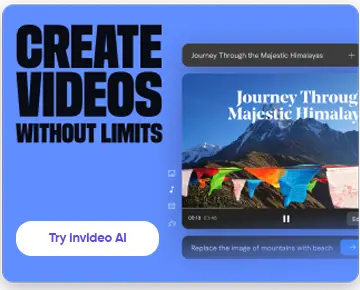As a marketer, you probably spend hours every day pulling data together from countless spreadsheets and dashboards (only to see little or no results). It is easy to lose focus and feel pressured in such scenarios, especially when a major chunk of your daily tasks depend on your manual efforts.
But it's 2025 and AI has already reduced this pain to a great extent. In fact, your competitors are probably getting a step ahead by integrating AI to streamline these tasks without compromising the quality.
If you’re still lagging behind and wondering if there’s a way you can outsmart them, you’ve found the simplest guide to understanding AI marketing in 2025.
Here's what we’ve covered:
So, without any further ado, let’s get started!
What is AI Marketing?
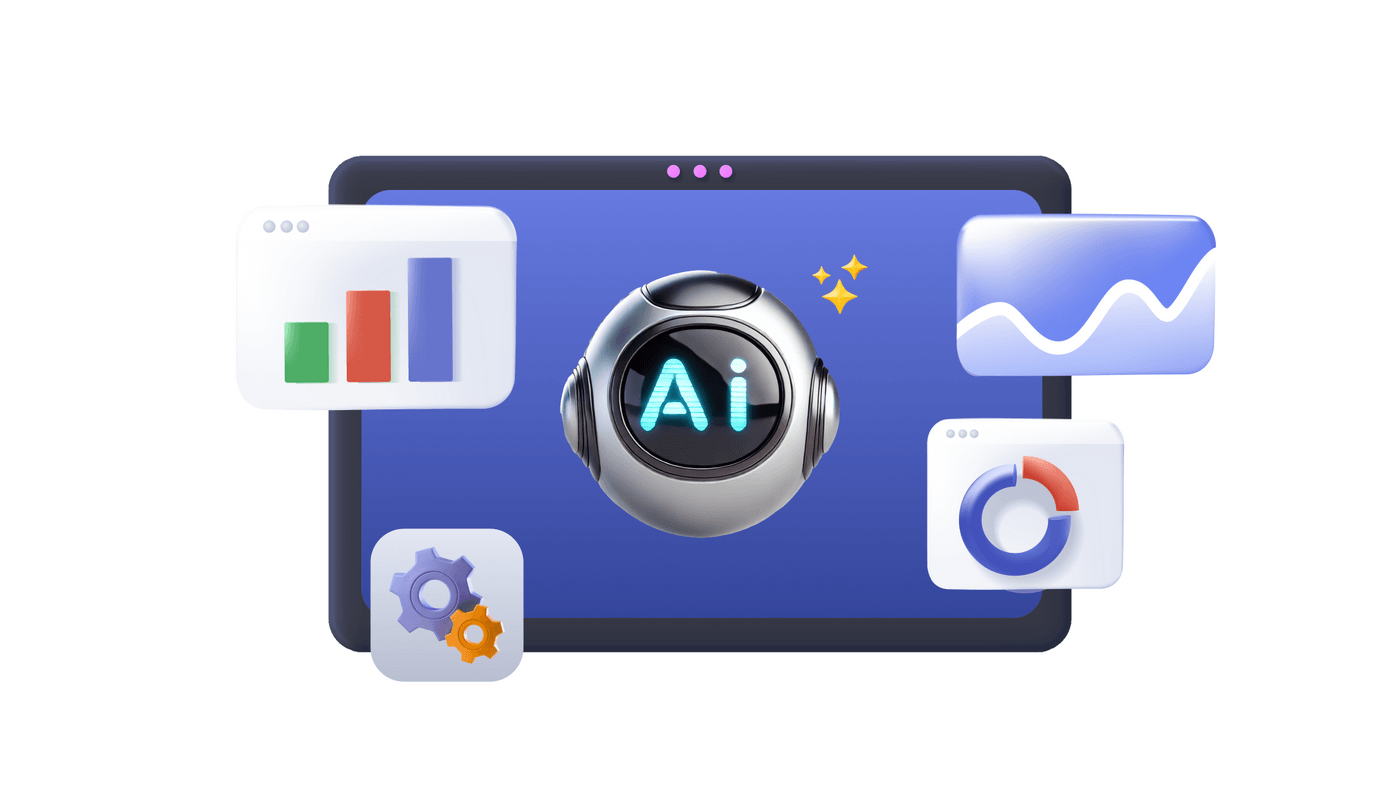
AI marketing is basically using AI to improve your marketing efforts. It involves using different AI techniques like machine learning and data analysis to automate decisions and gain valuable insights from customer data. This also helps to get a clear understanding of customer needs and tailor your strategies to create content, enhance customer experiences, and achieve precise results.
One of the most significant impacts of AI in marketing is seen in content creation as AI can now assist with writing scripts, creating videos from scratch, and adding voiceovers. This transformation is particularly evident in video marketing, as approximately 75% of marketers have used AI to create video content. As a result, it has now become easier to execute efficient marketing campaigns by producing engaging and relevant content that resonates with your audience and drives higher engagement.
Generate Al videos with just text Instantly turn your text inputs into publish-worthy videos. Try AI Video Generator
Try AI Video Generator
When to Use AI in Marketing?
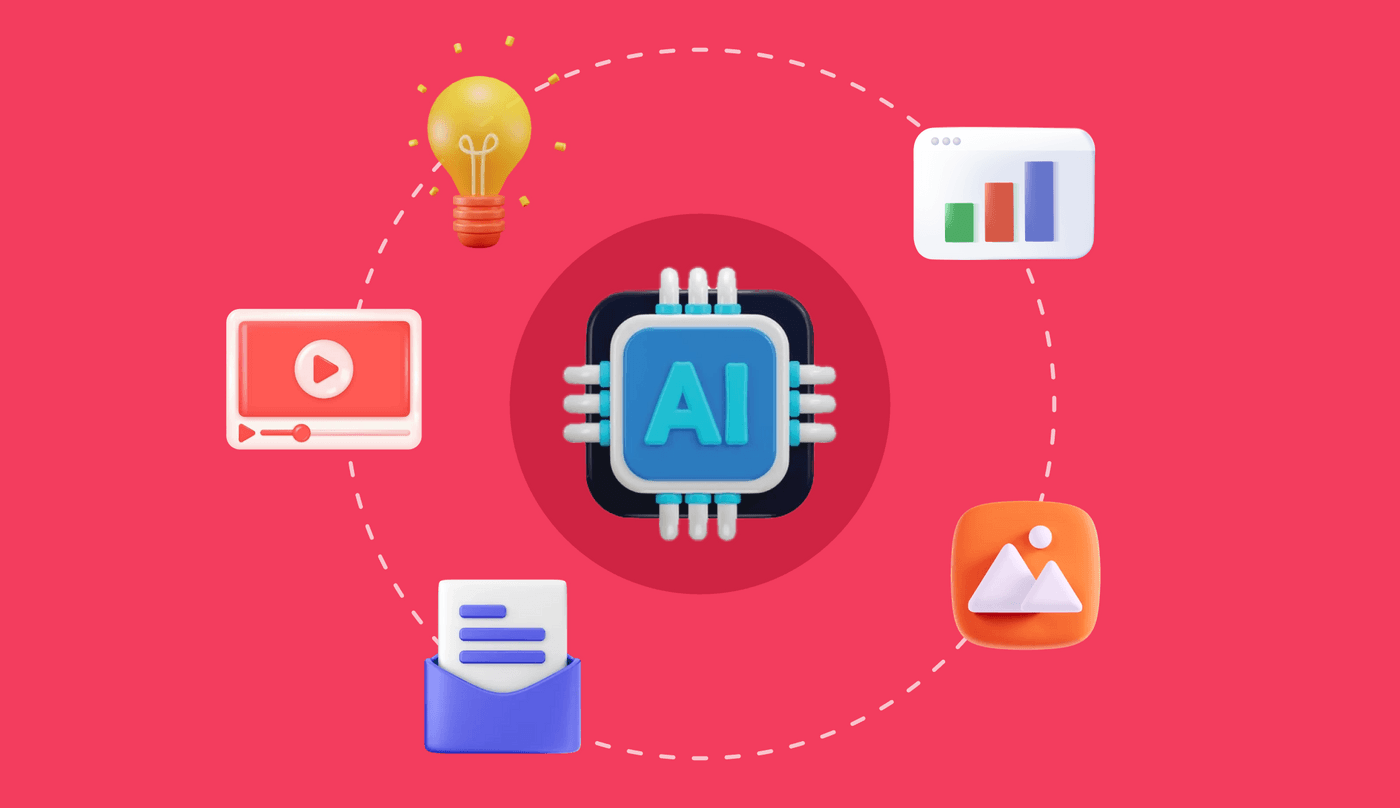
AI can assist you with everything from identifying your target audience and understanding them to creating personalized content and converting them into customers. But the question is – when exactly is the right moment, and how does it work in practical scenarios?
Targeted Marketing
If you’ve ever found it hard to efficiently allocate your advertising budget to reach the right audience, artificial intelligence marketing can be a game-changer. With the right AI tools, you can easily identify the prospects who are most likely to engage with your campaigns.
Suppose you're running an influencer marketing agency and want to identify micro-influencers to promote a client’s newly launched product. Here you can use AI tools like Hype Auditor to find influencers whose followers match your client’s target audience. These tools consider factors like interests, demographics, brand mentions, authenticity, and growth rate to find the most suitable influencers for a brand.
For example, if your client’s target audience is small business owners, AI will find influencers who are already active in this category. You can also use it to spot influencers with fake followers to see how genuine their engagement is as it can affect the organic engagement. This way, you can find the right influencers for your campaign to make sure it hits the mark.
Improved Customer Engagement Analysis
The integration of artificial intelligence in marketing is becoming normal due to its ability to handle vast amounts of data & provide insights beyond human capacity. This is becoming increasingly important as we’re in times when data-driven decision-making can easily give us an edge.
So, what exactly can AI do here? It can give you a deep analysis of customer interaction across multiple channels. This can include how customers engage with your products or services, what they’re interested in, or what they’re skipping. Here are a few tools to consider to help with different aspects of a campaign and make the best use of AI in marketing:
- Hootsuite Insights: Monitor and analyze what people are talking about your brand across all connected platforms.
- Salesforce Einstein: Build custom AI models to predict business outcomes, and optimize marketing strategies by personalizing customer interactions. Plus, it can also automate tasks and give recommendations across domains like sales, service, and marketing.
- IBM Watson Marketing: Understand customer behavior, and trends to help get insights into the risks of customer attrition or engagement levels.
- QlikView: Handle Complex data analysis and generate detailed reports to help track marketing KPIs, sales data, and customer engagement metrics.
- Akkio: Automate and enhance predictive analytics to optimize ad spending, score leads, forecast sales, and improve overall campaign performance.
Examples of AI Marketing
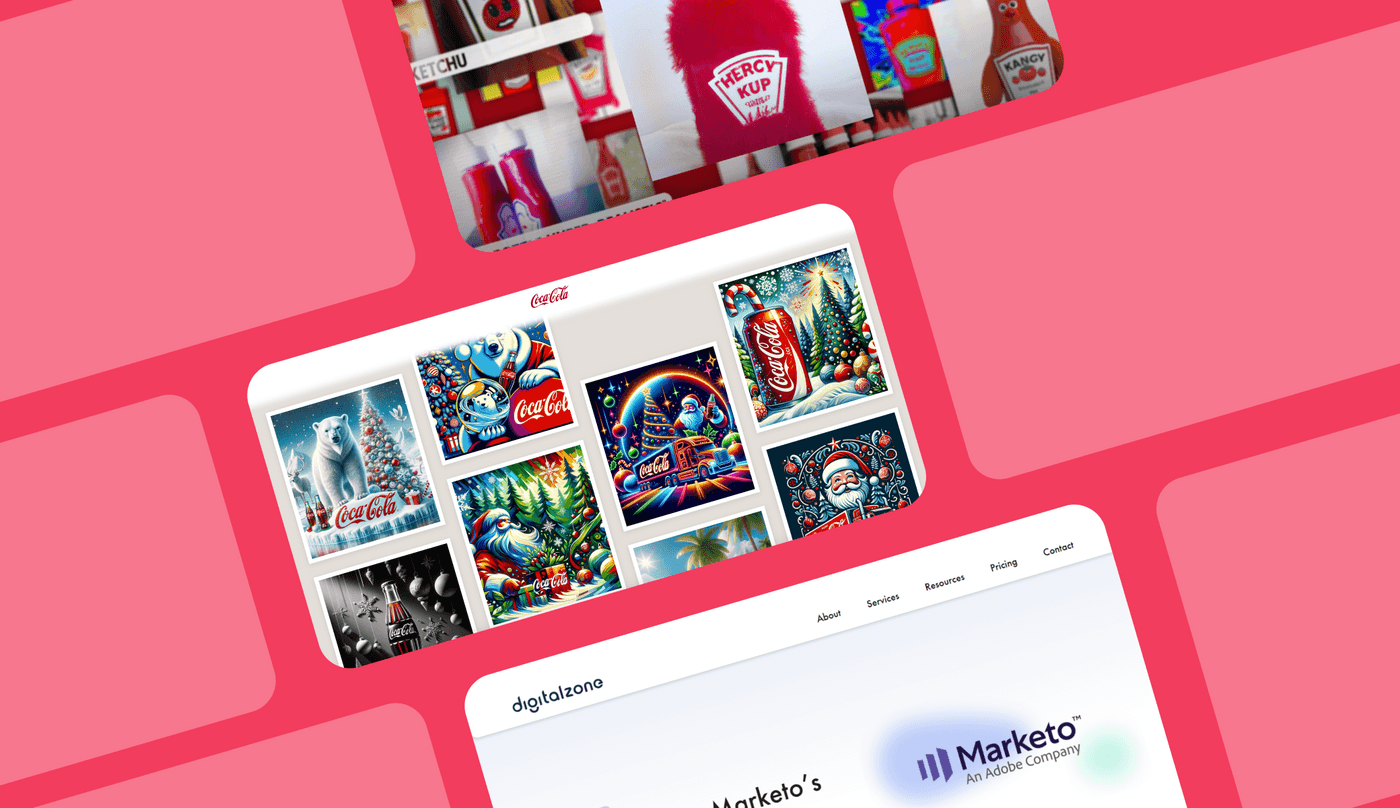
The application of AI in marketing is becoming more diverse and brands across industries have adapted to them with their own ideologies. Clearly, AI is not just receiving strategies but also reading the very core of how brands in 2025 are interacting with their customers. Let’s take a look at some interesting examples of AI marketing.
Marketo
Marketo’s integration of AI in its marketing efforts is a brilliant example of how technology can help improve outreach. Here’s how this was done:
Content Syndication Strategy
In 2021, Marketo collaborated with Digitalzone to revamp its lead generation strategy with a content syndication strategy. This approach was all about sharing and promoting content across different platforms to reach a broader audience. It meant distributing valuable marketing assets across multiple industries to attract high-quality leads.
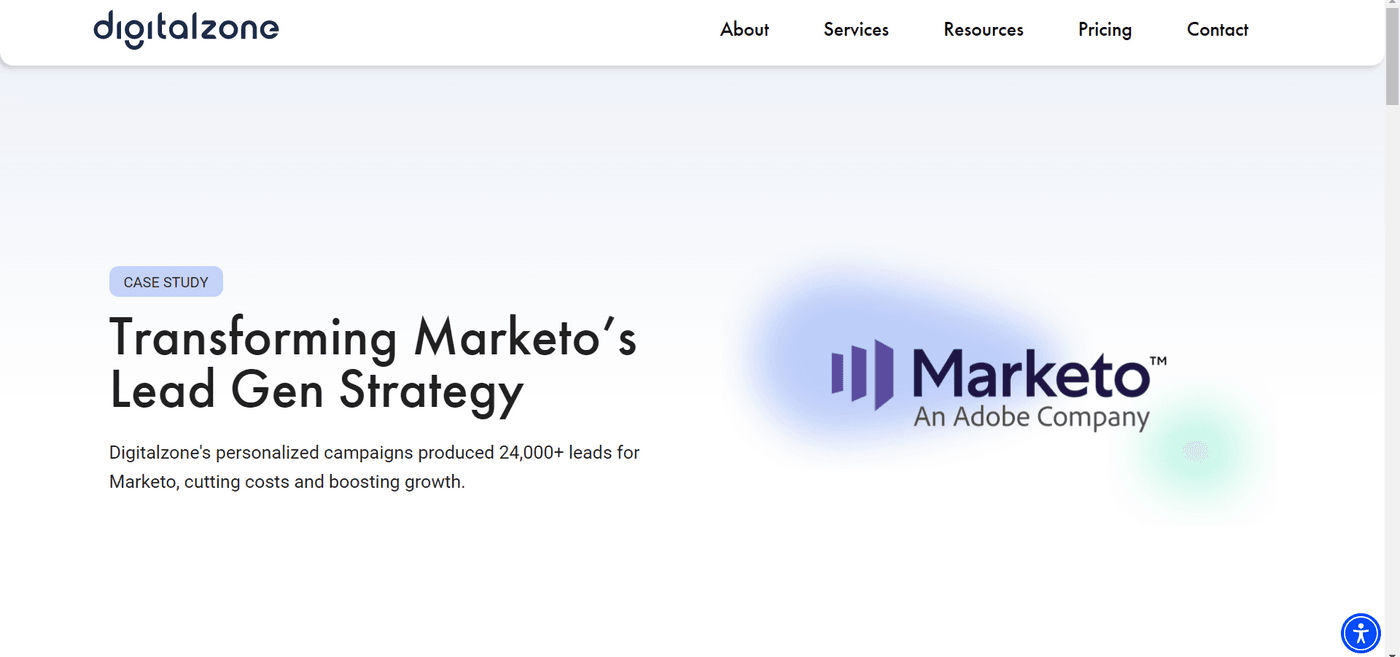
This strategy not only generated over 24,000 high-quality leads but also significantly reduced the associated cost. Basically, by delivering content where it would most likely resonate, Marketo made sure that their efforts were both efficient and effective and that they are approaching AI-based marketing the right way!
Integration of Intent Data
Marketo’s use of intent data proved to be a smart way to focus marketing efforts where they’re most likely to pay off. The brand partnered with Bombora to get access to the company’s search intent data, which helped it pinpoint companies already researching marketing automation solutions. Marketo used this information to customize its emails and LinkedIn ads to catch them at just the right time with the right message!
This did two things:
- Email became more effective with 107% more open rates and 120% better click-through rates.
- Ads targeted at interested companies performed much better, which led to more clicks and interactions at a lower cost.
Overall, marketing with AI in this case led to higher engagement rates with better ROI. This not only helped the brand react to market conditions but also anticipate them by predicting which leads are more likely to convert based on their existing activities.
Heinz’s “Draw Ketchup” Campaign
Heinz went a bit futuristic with its approach to using AI in marketing. Their campaign “Draw Ketchup” skillfully used AI with a touch of nostalgia and reminded us just how iconic the brand really is. It did so by engaging with customers in an entirely new way. This initiative was a sequel to the previous campaign in which people were asked to draw what they thought of when they heard the word “ketchup.” Most of them had Heinz’s iconic bottle and label as their answer.
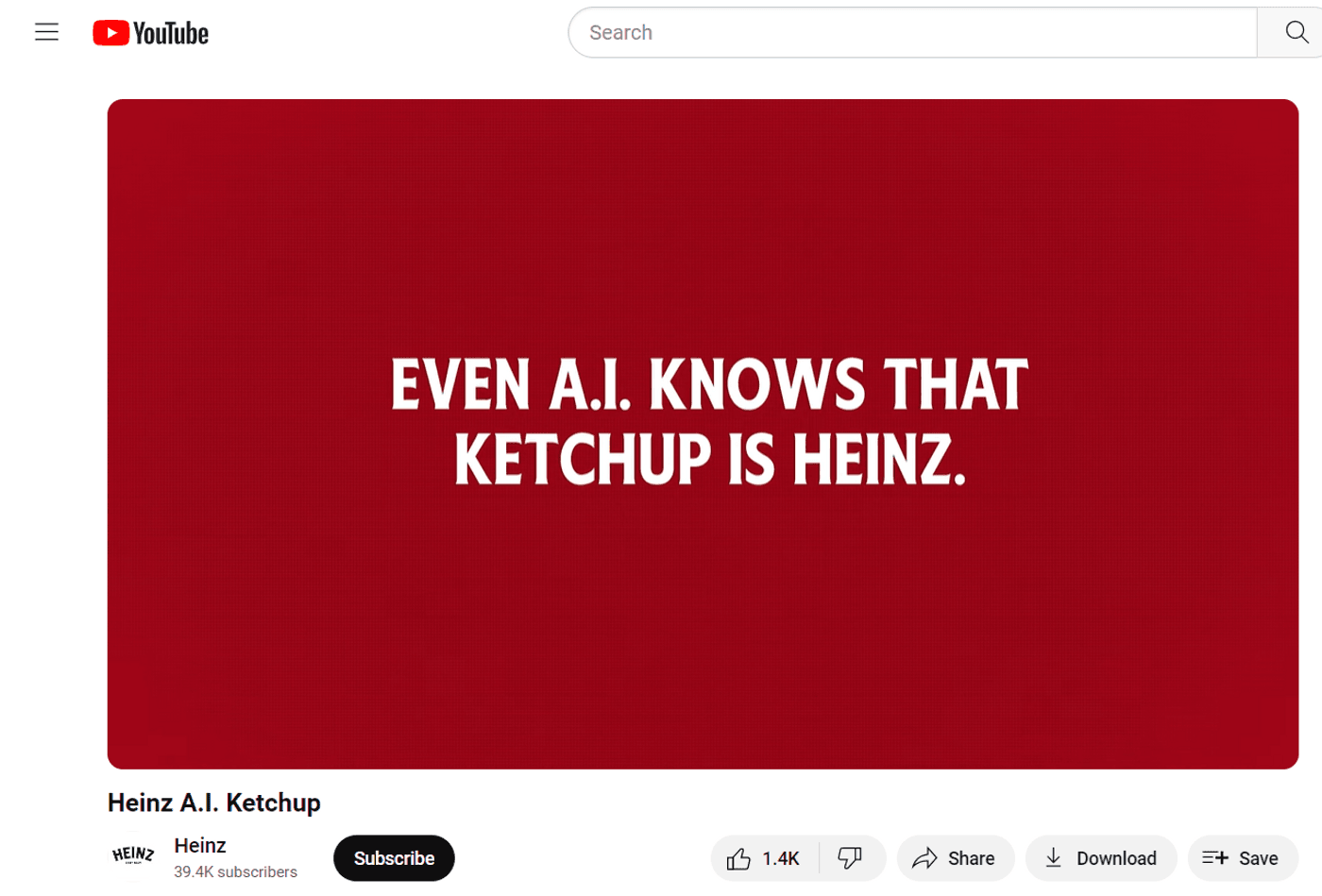
Taking this one step further, the brand integrated OpenAI’s DALL-E 2 to create visuals from similar prompts, such as “ketchup in space” or “ketchup art.” The results clearly reflected the brand’s strong presence because even though the prompts didn’t specifically mention the brand, they did remind us how deeply they are embedded in people’s perception of ketchup!
But that was not the end. The campaign also expanded its reach by inviting people to contribute their own creative prompts. People shared their works across multiple platforms, which made the brand a part of both – social media conversations and outdoor advertising. This, again, worked as a reminder of how the campaign turned out to be a shared creative journey for everyone!
Coca-Cola
If you’ve ever wondered how to use AI in marketing with a pinch of creativity, Coca-Cola’s “Create Real Magic” platform is a great example. This beverage giant partnered with OpenAI and Bain & Company to launch a first-of-its-kind AI platform, powered by GPT 4 and DALL-E. The mission was to invite artists from across the world to interact with the brand and create original artwork using the brand’s iconic visual elements.
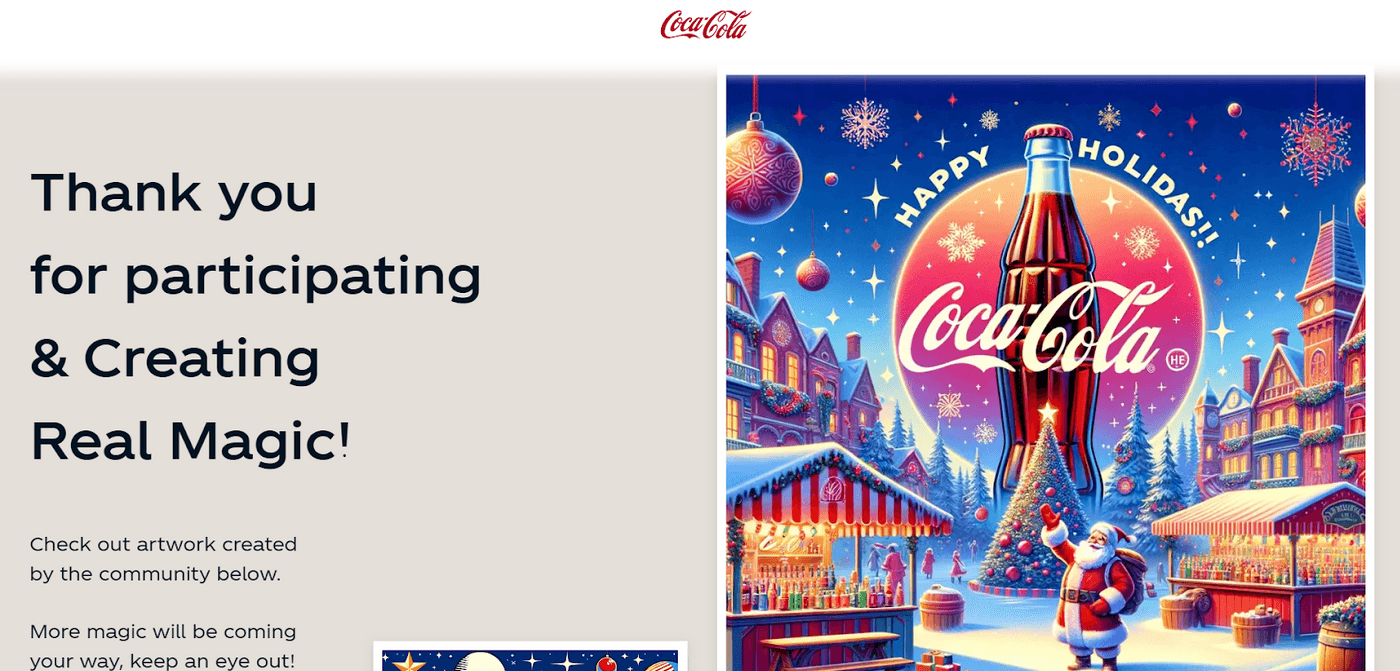
So, what made it so special? More than just a marketing campaign, this was a smart strategic move to build creative engagement with the brand. It gave the artists a platform to showcase their work and even a chance to get featured on New York Times Square and London’s Piccadilly Circus. Now, that’s a big win!
The outcome was equally exciting and fruitful. Not only did the campaign generate good buzz but also contributed to a 5% increase in net revenue by the end of the first quarter of 2023. Evidently, that was a clever use of AI for marketing, which generated impressive results and figures!

AI Marketing Strategies
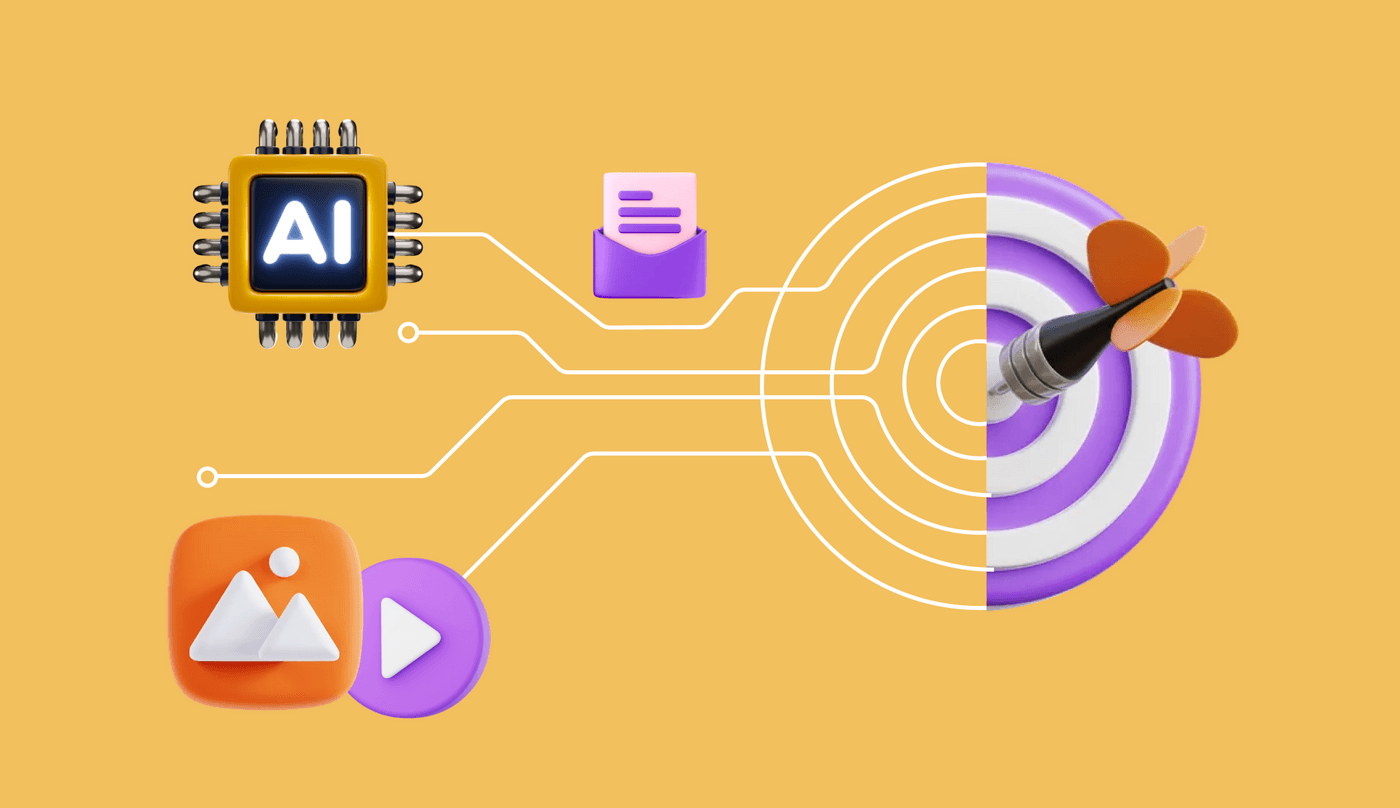
Among all the examples discussed above – there is one thing in common. They are all successful. But what drove this? AI marketing strategy plays a critical role here as it shapes your vision and helps you decide how to go about it. Here are some of the most talked about ones to keep an eye on:
Video Marketing
Video ads have an average click-through rate (CTR) of 1.84%, which is the highest among all digital ad formats. Clearly, video marketing can give you an edge with the right approach and strategy. This is where AI can work its charm by speeding up the video creation process without compromising the quality and of course, its impact. That way, your videos are more likely to engage viewers and eventually, bring in more customers!
With an AI video generator like invideo AI, it is easier than ever to reduce production time, and cut off mundane tasks like scripting and editing – all while scaling your operations. How so? All you need to do is enter any topic, and the tool will generate a script, create visuals, and add voice-overs in 50+ global languages and subtitles automatically. You will have publish-worthy high-quality videos ready within minutes!
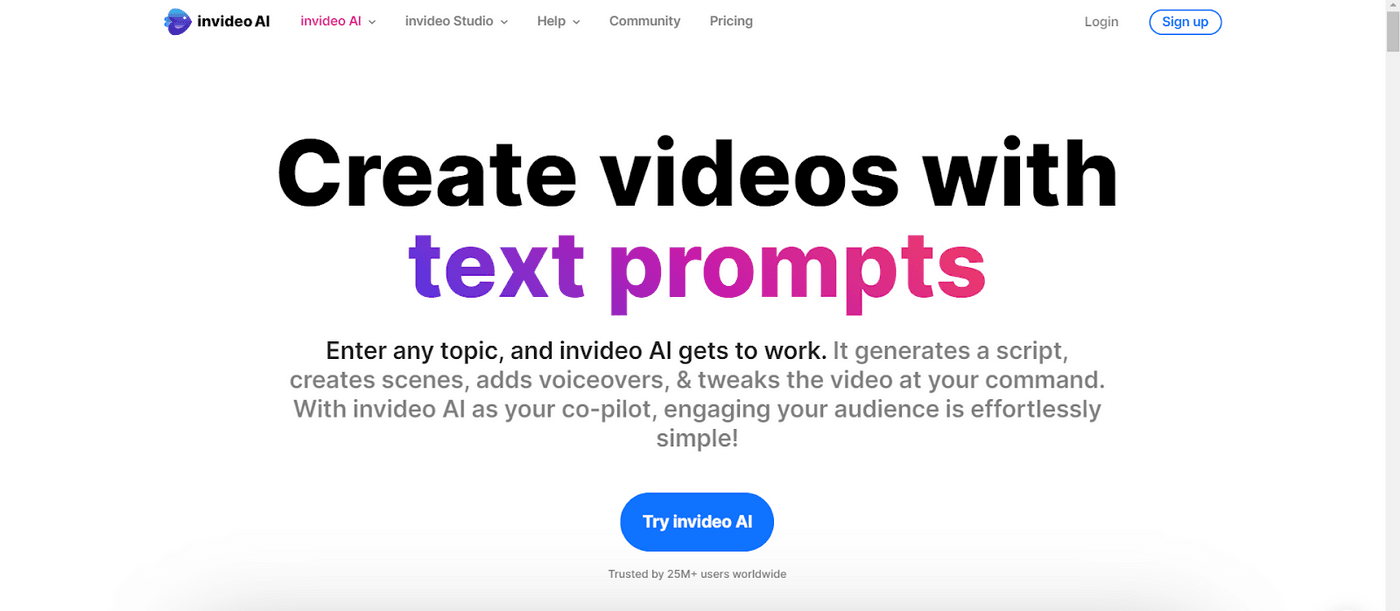
Moreover, the tool offers some exceptional features to give you all-round support at every step of video creation. This includes:
- Automatic script writing to save you hours,
- Human-sounding voiceover in multiple languages and accents so your campaigns reach as far as possible,
- Voice cloning to replicate your voice,
- Subtitles in 10+ styles accessible from any workflow option.
- More than 16 million stock photos and videos to maintain the class and professionalism in your videos, and much more!
Ready to create stunning videos? Sign up and get started today!
Predictive Analytics
This can be a great tool in your marketing toolkit to get a deep and dynamic understanding of customer behaviors and future trends. Predictive analytics typically involves historical data, statistical algorithms, and machine learning techniques to spot the possibilities of future outcomes.
In marketing, this means analyzing past customer behavior and using them to predict their future buying patterns, preferences, and responses. Here’s what all it makes possible: :
- Better efficiency in ad spend by targeting users more likely to convert
- Higher customer retention with personalized experiences and timely management
- Improved ROI as campaigns are more likely to reach and resonate with the target audience
- Better customer satisfaction as interactions are more relevant and hit the pain point
However, you need to consider a few things if you’re thinking of bringing AI and marketing together for your campaigns in 2025:
- Quality over quantity of data: The success will depend not just on the volume of data you collect but also on its quality. Make sure that you have accurate and relevant data because the insights derived will only be as good as the data you feed into your AI models.
- Have clear objectives: You will need a clear and actionable purpose. Before implementing these tools, think of the business outcomes you are aiming for. This will give you more clarity on how to go about it.
- Robust data processes: Make sure you have the right processes to manage this data, which includes removing any inaccuracies or irrelevant information.
How To Implement This Strategy?
Now that we have a clear idea of the required approach, let's get into the process. To execute this, you can use AI integrations of tools like HubSpot, Salesforce, and Marketo as they come with built-in AI capabilities to help with customer data analysis and future trend prediction. Here’s what this will look like:
- Start by gathering data from different sources such as customer interactions, transactions, and social media activity. This will give you a good idea of what they are expecting and most interested in.
- Check for any duplicates or errors in your data so that the insights you get are reliable and actionable.
- The next step is to build predictive models with statistical algorithms to forecast future consumer behavior.
- Once you have the predictive models, integrate them into your systems for real-time insights. This will help you to use predictive analytics to customize your strategies and execute accordingly.
AI Chatbots
Chatbots have made customer interactions much easier and faster as they ensure your support team is always just a message away. By automating responses to commonly asked questions, AI chatbots drastically bring down the waiting time, leading to better customer satisfaction.
Since they are easy to integrate into websites and social media platforms, it becomes easy to establish trust with customers when they are looking for immediate support.
But, is that all these chatbots can do? Or there’s more that AI can offer here?
Apparently, artificial intelligence for marketing, in this case, has already pushed the boundaries of traditional customer service and marketing in many other ways.
With tools like Chatfuel, ManyChat, Drift, Intercom, and others, it is easier than ever to build and set up an AI chatbot for your platforms. Here’s what bringing together artificial intelligence and marketing in this scenario can do for you:
- Better lead qualification: AI chatbots are great at engaging visitors and identifying high-potential leads by asking strategic questions. This streamlines your lead generation process and helps with a more focused approach.
- Dynamic personalization: Chatbots use customer data to enable highly customized conversations, which makes the interaction feel personal and relevant. This can do wonders in improving customer satisfaction and loyalty because the customers will be getting exactly what they are looking for.
- Efficient marketing research: AI chatbots continuously gather and analyze customer feedback to provide you with real-time market insights. This is why it gets easier to quickly adapt to the changing customer needs and preferences.
- Automated transactions: AI chatbots also reduce the steps in the customer journey by simplifying their transaction process through direct purchases or bookings. This makes it easy for the customer to navigate the buying process and for the businesses to streamline the processes on their end.
AI-Powered Customer Segmentation
Constantly adapting to the changes in market dynamics and unpredictable consumer behaviors is indeed daunting. Customer segmentation makes this easier by breaking down large diverse audiences into manageable groups. This makes it easy to effectively target and engage each segment.
So, what role does AI-powered marketing play here? Well, it challenges the limitations of traditional customer segmentation tactics that usually depend on assumptions. This can be an assumption that all people in a given demographic behave in the same way.
We all know that's not always true, especially when there’s a new trend every other week. This is where your strategy might fail as no demographic is a monolith and not every person is the same. Clearly, it's not wise to build a whole marketing strategy simply based on an assumed idea with nothing concrete to back it up.
Try online AI video maker Create high-quality videos for your business with AI video maker easily Get Started Now
Get Started Now
How Does AI Help Here?
AI customer segmentation is more about leaning into the reality that people and their purchasing behaviors are indeed complicated and often unpredictable. With predictive GenAI tools like Pecan AI, you can target customers with laser-focused precision in your day-to-day marketing strategies.
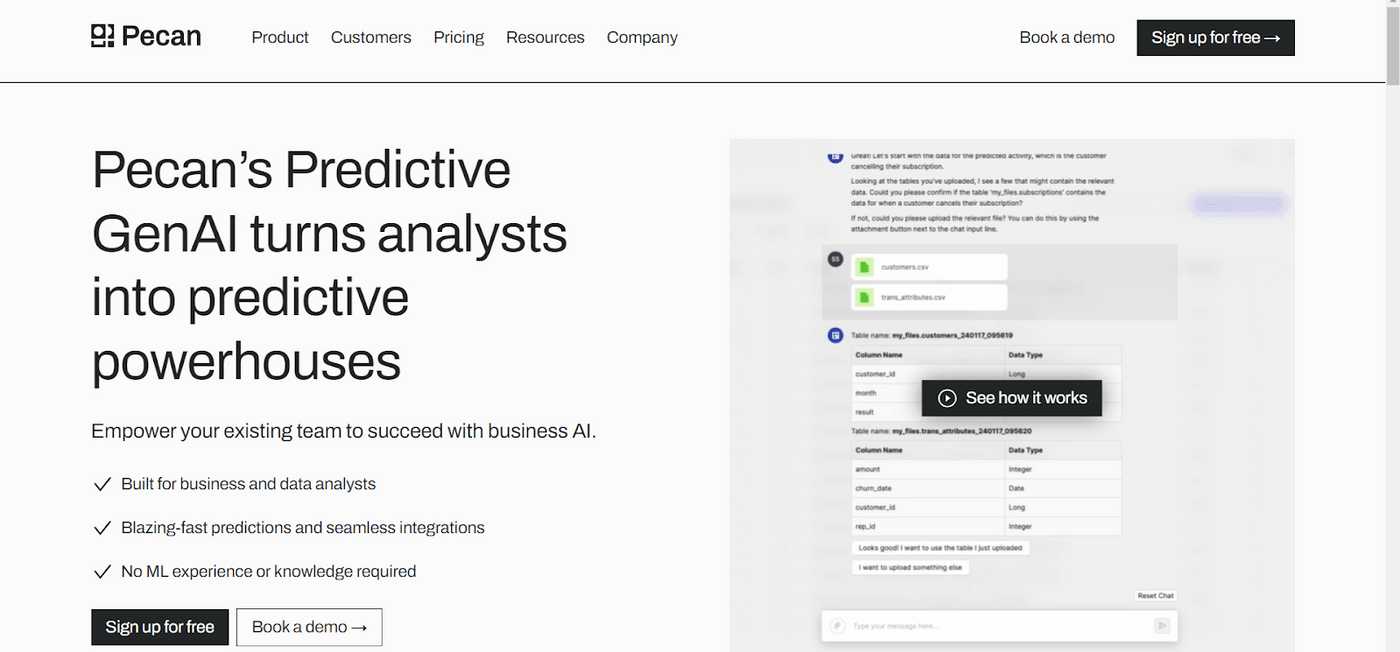
In short, it doesn't let you depend on assumptions and reduces the possibility of missing out on potential customers. Here’s how:
- It gives you a crystal clear idea of how individuals fit into different categories using Predictive AI. This defines pure segments and creates a far more accurate picture of who your buyers really are.
- Keeps track of the changes in economic, social, and chronological aspects which the traditional segmentation doesn't cover.
- Your content will be strategically targeted to only those users who are most likely to be interested in purchasing. Eventually, this increases the odds of higher conversion rates and ROI.
All in all, targeting your ideal customers with AI is far more effective and worthwhile as it saves you from the pitfalls of traditional concepts. So, if you are looking forward to upgrading your targeting strategies, AI can seamlessly level up your game!

Conclusion
Staying relevant in 2025 means keeping up with advancements in AI marketing and adapting to them with the right approach. If you’re falling behind or your current strategies aren’t cutting it, NOW is the right time to start. Start by focusing on one aspect of your marketing efforts – whether it is streamlining content delivery or customer segmentation. Integrate the right tools, observe the performance, and modify your strategy accordingly, and in no time, you’ll see yourself achieving those goals!
Also, if you prefer learning using videos, make sure to check out our YouTube channel as we actively posting practical tips & tricks that’ll help you scale your video marketing effort.
Related posts:


